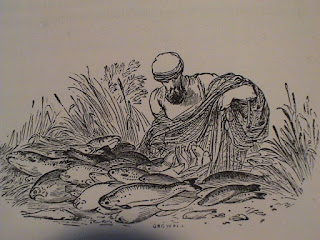Jonah said, "I'd rather be sailing."
And God said, "Good luck with that."
https://youtu.be/vVP4lURLHB4
The satirical book of Jonah is one of the few books of the Bible whose main purpose is to show God's mercy toward non-Jewish people. It has a polemical purpose that shows the general struggle of man with God. The only minor prophet referred to by Jesus it is used in the gospel as an illustration of redemption which parallels the death, burial and resurrection of Christ, and is read by Jews during Yom Kippur, the day of atonement. Verse one of the second chapter states that Jonah prayed to God from the stomach of the sea creature, whether a whale or a fish we cannot be certain based on the native language. Jesus placed Jonah with the Queen of Sheba and Nineveh as historical characters (Matt. 12:38-42, 16:4, Lk. 11:29-32). After his maritime experience Jonah had to make a trip to Nineveh over 500 miles from the coast to fulfill his mission. Fragments of the Book of Jonah were found among the Dead Scrolls as well as the LXX thus validating its common use before the time of Christ. Jonah (Yunus) is the only minor prophet referred to in the Quran, which might shed some light on what books were available to Muhammad over five centuries after Christ.




